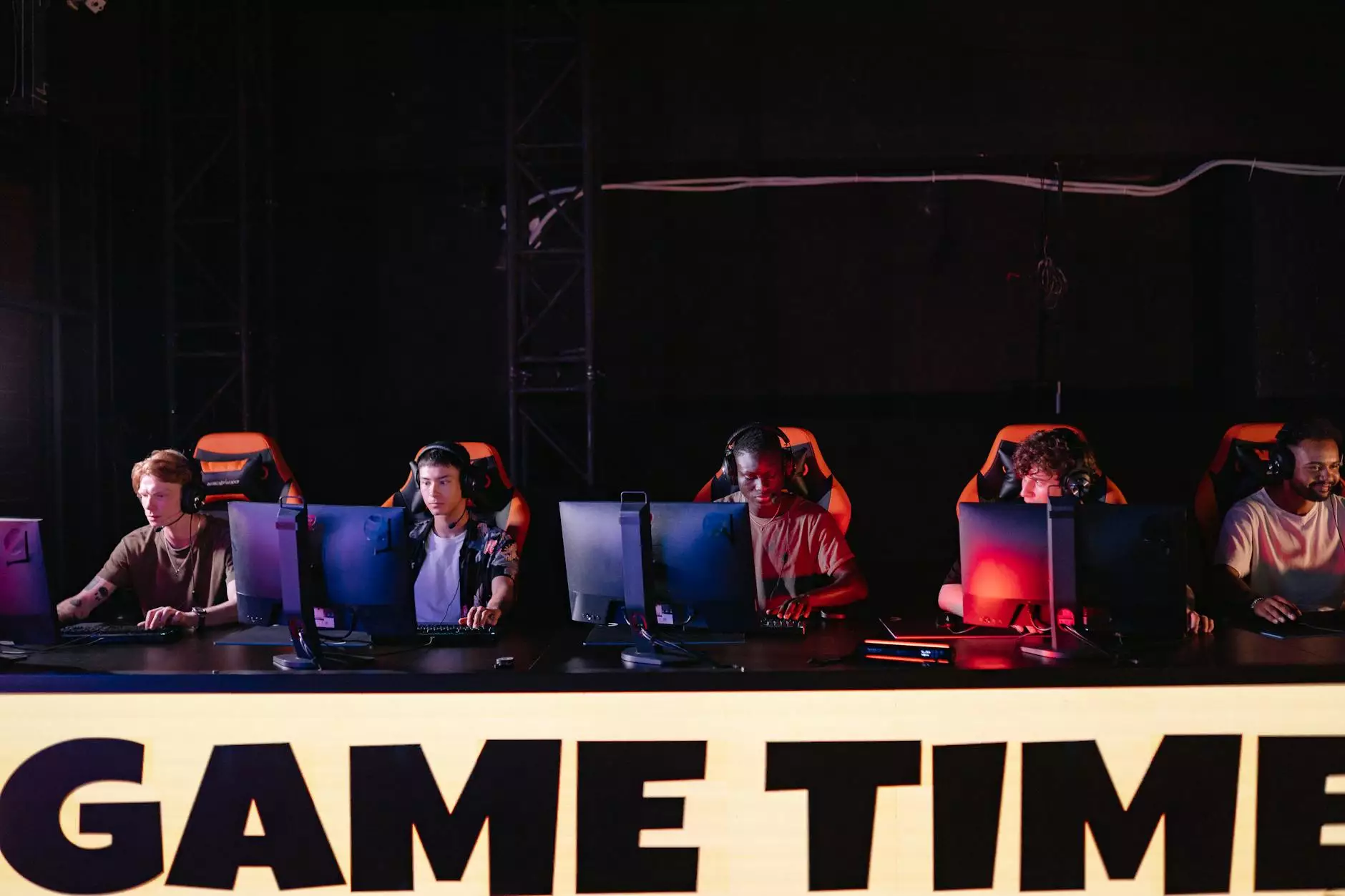Exploring the Future of Web Multiplayer Game Development

In the rapidly evolving digital landscape, web multiplayer game development has emerged as a pivotal area within the gaming industry. Developers and companies alike are harnessing the power of the internet to create immersive and engaging experiences that unite players from different corners of the globe. In this article, we will delve deep into the intricacies of web multiplayer game development, highlighting its importance, challenges, and how Pingle Studio, a leading Game Development Outsourcing Company, is at the forefront of this exciting field.
The Rise of Multiplayer Online Games
The surge in internet penetration and advancements in technology have significantly transformed how games are developed, distributed, and played. Multiplayer online games have gained immense popularity due to their social nature and the ability to connect players in real-time. Players can now team up with friends, compete against others, or collaborate with random players worldwide, creating a more dynamic and inclusive gaming environment.
Key Elements of Web Multiplayer Game Development
Developing a web multiplayer game is not a trivial task. It involves several fundamental aspects to ensure a smooth and enjoyable player experience. Here are some key elements:
- Server Architecture: A robust server architecture is vital for handling the simultaneous interactions of multiple players. Cloud-based solutions often provide scalability and reliability for game developers.
- Networking Protocols: Choosing the right networking protocol, such as WebSocket or HTTP, is essential for real-time communication and data exchange between clients and servers.
- Game Logic: Implementing effective game logic ensures that the game mechanics work seamlessly, making gameplay intuitive and enjoyable.
- Security Measures: Protecting user data and preventing cheating is critical. This requires robust security measures to safeguard the integrity of the game environment.
- User Interface (UI): An engaging and intuitive UI is crucial for player retention and satisfaction. The design should facilitate easy navigation and interaction.
The Technological Backbone of Multiplayer Games
Modern web multiplayer games rely heavily on technology. Here are some of the technologies shaping the future of this industry:
1. HTML5 and JavaScript
HTML5 and JavaScript are foundational technologies for web development, allowing developers to create rich and interactive gaming experiences directly in the browser. The advantages include:
- Cross-platform compatibility: Games developed with HTML5 can run on any device with a web browser, eliminating the need for additional software downloads.
- Enhanced graphics and performance: Advances in HTML5 render high-quality graphics, providing a better visual experience for players.
2. Web Assembly
Web Assembly (Wasm) is revolutionizing web multiplayer game development by enabling near-native performance speeds in the browser. Developers can port code from languages like C++ or Rust to the web, enhancing game performance and complexity.
3. Cloud Gaming
With the rise of cloud gaming services, developers can stream games directly to players without requiring powerful local hardware. This technology significantly lowers the barrier for entry, allowing more players to enjoy high-fidelity games.
Collaboration and Community: The Soul of Multiplayer Gaming
At the heart of every successful multiplayer game is a vibrant community. Developers must create social features that foster collaboration and interaction among players. Here are some strategies to enhance community engagement:
- Matchmaking Systems: Efficient matchmaking creates fair and balanced games, improving player satisfaction.
- In-Game Communication Tools: Voice chat, text messages, and emotes enable players to communicate easily and forge connections.
- Community Events: Hosting events, tournaments, and challenges encourages player participation and provides rewards, enhancing community loyalty.
Challenges in Web Multiplayer Game Development
While the potential for web multiplayer game development is vast, several challenges must be addressed:
1. Scalability
As the player base grows, ensuring that servers can handle increased loads while maintaining performance is a critical challenge.
2. Latency
Latency can severely impact the gaming experience, resulting in lag during gameplay. Developers must optimize server locations and connectivity to minimize this issue.
3. Maintaining Balance
Creating a balanced game where no single player or group has an overwhelming advantage is essential for fairness and enjoyment.
The Role of Pingle Studio in Game Development
Pingle Studio stands out as a premier Game Development Outsourcing Company, specializing in delivering customized web multiplayer game development solutions. Our team brings together a wealth of experience and technical expertise to craft engaging multiplayer games that resonate with players. Here’s how we excel:
Expert Team of Developers
Our developers are well-versed in the latest technologies and methodologies in web development. They leverage their skills to create stable, scalable, and visually impressive games.
Client-Centered Approach
At Pingle Studio, we prioritize our clients’ needs. Our collaborative development process ensures that we align our goals with our clients’ visions, resulting in games that exceed expectations.
Ongoing Support and Optimization
We provide ongoing maintenance and optimization services to ensure that our games remain engaging, functional, and secure long after launch.
Future Trends in Web Multiplayer Game Development
The future of web multiplayer game development is rife with opportunities. Below are some emerging trends to keep an eye on:
- AI and Machine Learning: Utilizing AI can personalize gaming experiences and improve NPC behavior, making games more immersive.
- Virtual Reality (VR) and Augmented Reality (AR): The integration of VR and AR technologies will redefine how players interact within multiplayer environments, pushing the boundaries of traditional gameplay.
- Blockchain Technology: Implementing blockchain can enhance transparency and security in game transactions, paving the way for potential new business models centered around in-game assets.
Conclusion
In summary, web multiplayer game development is a continually evolving field that presents both challenges and opportunities. With the right resources and a commitment to innovation, companies like Pingle Studio are leading the charge to create captivating online gaming experiences that connect players worldwide. As we look to the future, embracing technological advancements and fostering community engagement will be key to the continued success of multiplayer games.
For those interested in exploring unparalleled gaming experiences, Pingle Studio is your go-to partner in bringing your gaming visions to life. Let’s build something extraordinary together!









